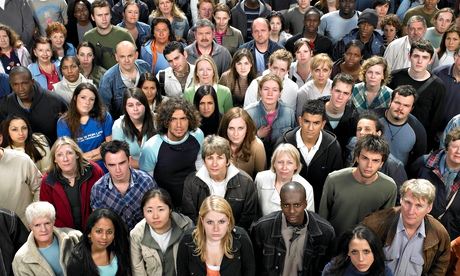
Crowdsourcing – calling on the public to complete business-related tasks or research – is proving to be one of the most divisive topics in the advertising industry. Brands are embracing it and becoming increasingly reliant on it, from competitions to solve technical problems to call-outs to submit new designs, slogans and products.
Agencies, however, have often considered it as a threat to the very core of their business. It has been portrayed by some as “the end” of agencies, but I’d argue this is far from true.
I would say that, you might say, being the chief executive of a co-creation platform, but crowdsourcing represents a new dawn for the advertising agency. To quote what a client recently said to me:
Some people think crowdsourcing is complex and risky, when in fact it’s all the contrary.
The digital stratosphere is constantly delivering change to the advertising industry and has helped to completely transform it over the past 20 years. As new technologies or trends threaten to enter the mainstream, they often pose a question to agencies: “How can we make the most of this for our clients?” This question should be asked of crowdsourcing too.
There’s no doubt the world’s top agencies still house some of the most talented creative individuals on the planet, but the monopoly on good ideas is no longer theirs. The digital era has provided access to talent from across the globe, which in turn can provide fresh, disruptive and authentic ideas for campaigns. At times, what really matters – a connection to the consumer – can be lost amidst the highly complex creative development process. Tapping into the psyche of the crowd can actually help agencies to reconnect with reality.
Research (data wall) from marketing startup Crowdtap and global research company Ipsos has shown that people aged 18 to 36 now trust consumer-generated content more than non-consumer-generated content. Co-creating with the very people that advertising campaigns are aimed at no longer requires expensive focus groups – crowdsourcing is an intuitive way for brands to engage with the consumer.
Brands don’t want to choose between retaining an agency for their advertising campaigns and opening themselves up to a wider pool of talent, nor should they. Clients still need agencies to design, plan, execute and maintain control of consistent brand strategies and integrated marketing activities across multiple consumer touch points and markets. So the challenge becomes about organising a successful collaboration between the two in order to deliver the best results.
Brands have been expecting their agency partners to bring them the “best of both worlds” and to help them collaborate with a wider ecosystem for some time now. Yet I am constantly witnessing increased frustration from brands who feel that agencies are holding on to the old model and resisting genuine change, instead of embracing this wealth of ideas to build better brands. When speaking about content creation at this year’s Cannes Lions Festival, WPP chief exectutive Sir Martin Sorrell quite rightly said: “We all have to get used to the fact the client doesn’t mind where it comes from as long as they get a good solution.”
To my mind, there are two types of agencies in the world today: open agencies that welcome and embrace collaboration, and closed agencies that operate in defence mode, holding on to outdated models in a misguided attempt at maintaining control. As a result they are taking the risk of missing better ideas.
As Asatsu-DK’s Kenichiro Omori puts it: “The duty of an agency is to embrace change before its clients.” By combining the best of both worlds – the collective creative intelligence from the crowd, together with their expertise and brand knowledge – agencies can leverage crowdsourcing as a tool to reinvigorate their business and deliver campaigns inspired by the public, for the public.
François Pétavy is chief executive of crowdsourcing platform eYeka – follow him on Twitter @fpetavy
To get weekly news analysis, job alerts and event notifications direct to your inbox, sign up free for Media Network membership.
All Guardian Media Network content is editorially independent except for pieces labelled ‘Advertisement feature’. Find out more here.

